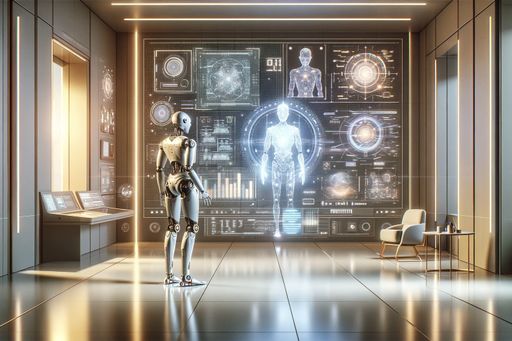Adventures in Image Synthesis - Meta's New AI Image Generator
Meta has released a new AI image generator called 'Imagine with Meta AI' that was trained on 1.1 billion Facebook and Instagram photos. The AI model can render images from written prompts, and was previously only available in messaging and social networking apps. This article explores the training data used for the AI model and discusses the features and limitations of the new image generator.

Meta Trains AI Image Synthesis Model on 1.1 Billion Public Photos
Meta has released a standalone AI image-generator website called 'Imagine with Meta AI'. The website is based on Meta's Emu image-synthesis model, which was trained using 1.1 billion publicly visible Facebook and Instagram images. This massive dataset allows the AI model to generate novel images from written prompts.
Previously, Meta's AI image synthesis technology was only available within messaging and social networking apps such as Instagram. Now, with the release of 'Imagine with Meta AI', users can access the image generation feature outside of these apps and create images with technology from the Emu model.
Training Data Includes Publicly Visible Facebook and Instagram Photos
The training data for Meta's AI image-synthesis model comes from publicly visible Facebook and Instagram images. If you use these platforms, it's possible that pictures you have taken or are in have helped train the Emu model. This raises questions about privacy and data usage, as it highlights that users are the product when they use these platforms.
However, it's important to note that the dataset used for training the AI model is a small subset of the overall photo library of these platforms. With millions of photos uploaded each day, the 1.1 billion photos used by Meta represent only a fraction of the available images.
Features and Limitations of Imagine with Meta AI
Imagine with Meta AI generates images based on the visual concepts learned from the training data. Users can input written prompts and the AI model will create four 1280x1280 pixel images that can be saved in JPEG format. It should be noted that each image includes a small watermark indicating that it was generated with AI.
In terms of its capabilities, Meta's AI image generator performs well in creating photorealistic images. However, it may not handle certain types of prompts or media outputs as effectively as other AI models. It is also worth mentioning that the generator applies content filters, blocking out violence, curse words, sexual topics, and the names of celebrities and historical figures, while still allowing commercial characters like Elmo.
Overall, Imagine with Meta AI provides a standalone experience for creative hobbyists to generate images using Meta's Emu model. While it has its limitations, it offers a fun and creative way to explore the capabilities of AI image synthesis.



